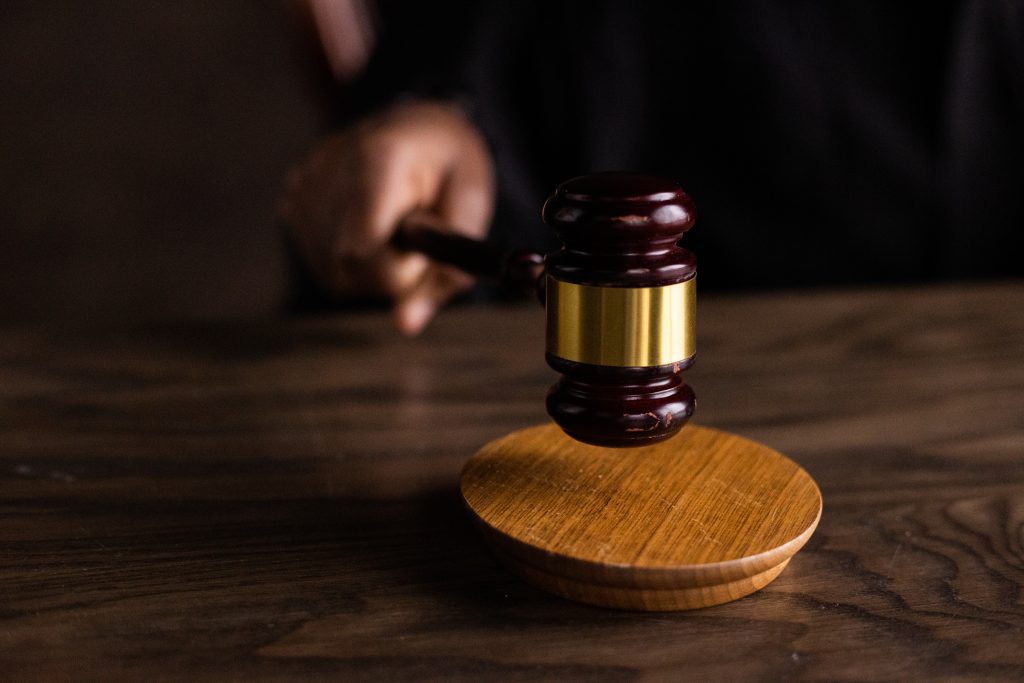Are you facing a legal dispute over a contract? Don’t worry, we’ve got you covered. In this article, we will delve into the complex world of contract litigation and provide you with all the necessary information to navigate through it. Whether you are dealing with breach of contract, ambiguous terms, or a disagreement with the other party, our aim is to offer reassurance and guidance. We understand that legal matters can be overwhelming, but you don’t have to face them alone. Read on to gain valuable insights and learn how to protect your rights.
Understanding Contract Litigation
Contract litigation refers to the legal process of resolving disputes or conflicts arising from contractual agreements. It involves taking the matter to court to seek a judgment or resolution. Contract litigation can be a complex and time-consuming process, but it plays a crucial role in upholding the integrity and enforceability of contractual agreements.
What is Contract Litigation?
Contract litigation occurs when one or more parties involved in a contract are unable to resolve their differences through negotiation or alternative dispute resolution methods. In such cases, they turn to the legal system for guidance and resolution. Contract litigation typically involves analyzing the terms and conditions of the contract, assessing the actions or omissions of the parties, and determining whether there has been a breach of contract.
The Importance of Contractual Agreements
Contractual agreements form the foundation of numerous business relationships, transactions, and personal arrangements. They provide clarity, define rights and obligations, and ensure that all parties involved understand and agree to the terms of their relationship. By establishing clear expectations and guidelines, contracts help prevent misunderstandings and disputes.
When disputes do arise, contract litigation ensures that parties are held accountable for their actions or failures to act in accordance with the contract. It provides a legal framework for resolving conflicts and seeks to protect the interests of the parties involved.
Common Types of Contract Disputes
Contract disputes can arise in various situations and industries. Some common types of contract disputes include:
-
Failure to perform: This occurs when one party fails to fulfill their obligations as outlined in the contract.
-
Payment disputes: Disagreements may arise regarding the amount or timing of payments stipulated in the contract.
-
Breach of confidentiality: Issues may arise when one party discloses confidential information without consent.
-
Contract interpretation: Differences in interpreting the terms and conditions of the contract may lead to disputes.
-
Termination disputes: Disputes occur when one party terminates the contract prematurely or fails to follow the agreed termination procedures.
Key Elements in Contract Litigation
Ensuring the key elements of contract litigation are understood is crucial for navigating the legal process effectively.
Meeting the Requirements of a Valid Contract
To proceed with contract litigation, it is essential to establish the existence of a valid contract. A valid contract generally consists of the following elements:
-
Offer: One party must make a clear and specific offer to enter into a contract.
-
Acceptance: The other party must accept the offer made, demonstrating their intent to be bound by the terms of the contract.
-
Consideration: Both parties must receive something of value, known as consideration, in exchange for their promises or obligations.
-
Capacity: The parties entering into the contract must have the legal capacity to do so. This means they must be of legal age, mentally competent, and not under duress or undue influence.
-
Mutuality: Both parties must agree upon the same terms and conditions of the contract, establishing mutual assent.
Breach of Contract
A breach of contract occurs when one party fails to fulfill their obligations as outlined in the contract. This breach can be of various types, including non-performance, defective performance, or anticipatory breach.
Material Breach vs. Minor Breach
When a breach of contract occurs, it is important to determine whether the breach is material or minor. A material breach is a significant violation that affects the fundamental purpose of the contract, essentially depriving the non-breaching party of the benefits they were supposed to receive. In contrast, a minor breach is a less significant violation that does not undermine the overall purpose of the contract.
Defenses Against Breach of Contract
Defenses against breach of contract can be raised by the party accused of breaching the contract. Some common defenses include:
-
Impossibility: If performance becomes impossible or impractical due to unforeseen circumstances, this defense may be raised.
-
Breach by the other party: The accused party may argue that the other party breached the contract first, relieving them of their own obligations.
-
Fraud or misrepresentation: If one party was deceived or misled during the formation of the contract, they may argue that the contract is voidable.
-
Duress or undue influence: If one party was coerced or subjected to undue influence, they may argue that the contract is not valid.
Contract Termination or Rescission
If a breach of contract occurs, the non-breaching party may have the option to terminate or rescind the contract. Termination entails ending the contract altogether, while rescission involves canceling the contract and restoring the parties to their pre-contractual positions.

Legal Remedies for Contract Disputes
When contract disputes arise, various legal remedies may be available to the aggrieved party. These remedies aim to compensate the injured party, restore the party to their rightful position, or enforce the performance of the contract.
Compensatory Damages
Compensatory damages are the most common remedy in contract litigation. They aim to compensate the non-breaching party for the losses they suffered as a result of the breach. The damages awarded are generally intended to put the injured party in the position they would have been in if the breach had not occurred.
Consequential Damages
Consequential damages are damages that go beyond the direct losses caused by the breach. They are awarded when the breaching party could reasonably foresee the damages that would result from their actions or omissions. Consequential damages can include lost profits, additional expenses incurred, or other indirect losses.
Liquidated Damages
In some contracts, the parties include a liquidated damages clause, which specifies the amount of damages that will be awarded in the event of a breach. These damages are agreed upon and predetermined by the parties at the time of contract formation.
Specific Performance
Specific performance is an equitable remedy that compels the breaching party to fulfill their obligations under the contract. It is typically sought when the subject matter of the contract is unique or when monetary damages would not adequately compensate the non-breaching party.
Rescission and Restitution
Rescission is a remedy that cancels the contract and releases the parties from their obligations. Restitution involves returning any property or benefits that have been received under the contract. This allows the parties to be restored to their pre-contractual positions.
Alternative Dispute Resolution Options
While contract litigation is a commonly pursued option, alternative dispute resolution methods can be effective and less time-consuming. Consider exploring these options before resorting to the court system.
Mediation
Mediation involves a neutral third party, known as a mediator, assisting the parties in reaching a mutually agreeable resolution. The mediator facilitates communication, helps identify common ground, and encourages creative problem-solving. Mediation is non-binding, and the parties have control over the outcome.
Arbitration
Arbitration is similar to a private trial, where a neutral third party, the arbitrator, hears the evidence and arguments presented by both parties. The arbitrator then issues a binding decision, known as an arbitration award. Arbitration can provide a faster and more flexible resolution than traditional litigation, but it is important to carefully review the terms of any arbitration agreement before entering into it.
Negotiation
Negotiation is a process in which the parties attempt to reach a settlement through direct communication and compromise. It can take place informally or with the assistance of attorneys. Negotiation allows the parties to maintain control over the outcome and can be a more efficient and cost-effective method for resolving contract disputes.

Initiating a Contract Litigation
When all attempts at negotiation and alternative dispute resolution methods have been exhausted, initiating contract litigation may be necessary. It is important to approach the litigation process with careful consideration and proper preparation.
Pre-Litigation Considerations
Before filing a lawsuit, it is crucial to assess the strengths and weaknesses of your position. Consult with an attorney experienced in contract litigation to evaluate the merits of your case, review any applicable statutes of limitations, and consider the potential costs involved.
Gathering Evidence
Solid evidence is vital in contract litigation. Collect and organize all relevant documents, correspondence, emails, and any other evidence that supports your case. This evidence will play a significant role in proving your claims and establishing your rights under the contract.
Filing a Lawsuit
To initiate contract litigation, you must file a complaint with the appropriate court. The complaint outlines your claims, the relief sought, and identifies the parties involved. Working with an attorney can ensure proper filing procedures and adherence to the court’s rules.
Serving the Defendant
After filing the lawsuit, the defendant must be properly served with a copy of the complaint and summons. Service of process ensures that the defendant is notified of the lawsuit and has an opportunity to respond. Strict rules and procedures govern the proper service of process, and professional assistance may be necessary.
The Litigation Process
Contract litigation follows a standard process that involves various stages and procedures. Understanding the steps involved can help you navigate through the legal process with greater ease and confidence.
Pleadings
The pleading stage begins with the filing of the complaint by the plaintiff. The defendant must then file an answer, responding to the allegations outlined in the complaint. Both parties may also file additional pleadings, such as counterclaims or cross-claims, depending on the circumstances of the case.
Discovery
Discovery is the process of gathering and exchanging information between the parties involved. It allows each side to obtain evidence, identify witnesses, and evaluate the strengths and weaknesses of their case. Discovery methods may include written interrogatories, requests for documents, depositions, and requests for admissions.
Pre-Trial Conference
A pre-trial conference is usually scheduled to discuss the issues and claims involved in the case. The parties may have an opportunity to reach a settlement, narrow down the disputed issues, and establish procedures for the trial. The court may also address any pre-trial motions filed by the parties.
Trial
If the case proceeds to trial, both parties present their arguments, evidence, and witnesses before a judge or jury. The court evaluates the evidence and makes a decision based on the applicable laws and contractual terms. Trials can be lengthy and involve complex legal proceedings, so it is crucial to have a skilled attorney representing your interests.
Appeals
After a trial, either party may choose to appeal the decision if they believe legal errors or mistakes were made. Appeals involve reviewing the trial record and arguments presented by both parties to a higher court. The appellate court will determine whether errors occurred that influenced the outcome of the trial.
Factors Influencing the Outcome of Contract Litigation
Several factors can influence the outcome of contract litigation. Understanding these factors can help you evaluate the strengths and weaknesses of your case and make informed decisions throughout the process.
Strength of Evidence
The strength of the evidence plays a significant role in contract litigation. The more substantial and compelling the evidence supporting your claims, the stronger your position in the case.
Contractual Ambiguities
Contractual ambiguities can lead to disputes and complicate contract litigation. If a contract provision or term is unclear or susceptible to multiple interpretations, the court will evaluate the intent of the parties and apply principles of contract law to resolve the ambiguity.
Court’s Interpretation
The court’s interpretation of the contract terms and applicable laws can significantly influence the outcome of the case. The judge will review the language of the contract, consider the parties’ intentions, and apply legal principles to determine the enforceability and obligations under the contract.
Conduct of Parties
The conduct of the parties during contract performance and the resolution of disputes can impact the outcome of contract litigation. Courts may consider factors such as good faith, fair dealing, and whether the parties took reasonable steps to mitigate damages.
Dispute Resolution Clause
The presence of a dispute resolution clause in the contract can influence how contract disputes are resolved. Such clauses may require the parties to engage in alternative dispute resolution methods before initiating litigation or specify the jurisdiction and forum for resolving disputes.
The Role of Attorneys in Contract Litigation
When facing contract litigation, seeking legal representation is highly recommended. Attorneys play a crucial role in guiding clients through the complexities of the legal process and protecting their interests.
Legal Advice and Guidance
Attorneys provide legal advice and guidance tailored to the specific circumstances of the contract dispute. They analyze the facts of the case, assess the strength of evidence, and offer recommendations on the best course of action.
Drafting and Reviewing Contracts
Attorneys assist in drafting and reviewing contracts to ensure they are legally sound, comprehensive, and protect the client’s interests. They ensure that the terms and conditions are clear, enforceable, and comply with applicable laws.
Negotiating Settlements
Attorneys can represent their clients in negotiations to reach a favorable settlement. They advocate for their clients’ interests, protect their rights, and strive to achieve a resolution that is in their best interest.
Representation in Court
In contract litigation, attorneys provide representation in court. They argue their clients’ positions, present evidence, cross-examine witnesses, and make legal arguments to support their claims. Attorneys have the knowledge and expertise necessary to navigate the complexities of the courtroom and present a compelling case.

Costs and Timeframe of Contract Litigation
Contract litigation can involve significant costs and may take a considerable amount of time to reach a resolution. Understanding the potential expenses and timeframe is essential for clients entering into contract litigation.
Legal Fees
Legal fees in contract litigation can vary depending on the complexity of the case, the experience of the attorney, and the length of the litigation process. Attorneys may charge an hourly rate, a flat fee, or contingency fees based on the outcome of the case. It is important to discuss fee arrangements with your attorney and have a clear understanding of the potential costs involved.
Duration of Litigation Process
The duration of contract litigation can vary significantly depending on various factors, such as the complexity of the case, court availability, and the willingness of the parties to negotiate or settle. Some cases may be resolved within a few months, while others can take several years to reach a final judgment or resolution.
Conclusion
When involved in contract litigation, seeking legal guidance is crucial to navigate the complexities of the legal system effectively. Contract disputes can have significant implications, both financially and legally, and it is essential to protect your interests.
By understanding the key elements in contract litigation, the available legal remedies, and alternative dispute resolution options, you can make informed decisions throughout the process. Engaging the services of experienced attorneys can provide you with the necessary advice, guidance, and representation to achieve a favorable outcome.
Remember to seek legal assistance promptly when facing contract disputes, as acting sooner rather than later can help protect your rights and interests. Contract litigation requires careful preparation, gathering of evidence, and adherence to legal procedures, making it essential to have professional support by your side.